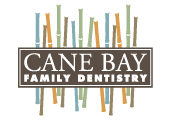Your jaw is attached to the rest of your head by a tiny little joint called your temporomandibular joint (TMJ). It acts like a hinge, allowing you to use your mouth and jaw comfortably and with ease. When it works fine, you may not even think twice about it. However, it can be a miserable experience when it stops functioning properly.
TMJ disorder is fairly common, affecting up to 35 million Americans. Fortunately, if you are experiencing the painful symptoms of TMJ disorder, we here at Cane Bay Family Dentistry can help you quickly address it, allowing you to get lasting relief from this unpleasant condition.
Dysfunction of your TMJ can be a very unpleasant experience for those who suffer from it. Indications that a person may have TMJ disorder may include pain and swelling in your jaw, popping and clicking when you open your mouth or try to chew, and a headache that runs up to your ears and down to your shoulders. TMJ disorder can cause pain and discomfort when you bite, eat, and chew. Sometimes the jaw may lock open, making it difficult and painful to close your mouth.
There are many different things that can lead to dysfunctions to the TMJ. Stress is a common trigger for this condition, especially if the patient suffers from bruxism (identified by clenching or grinding your teeth, particularly at night). Certain lifestyle considerations may also lead to problems with TMJ, such as chewing gum.
Damage to the TMJ can increase a person’s risk for TMJ disorder, too. Certain types of arthritis can affect the TMJ, as an injury to the joint. Connective tissue disorders can make the joint more vulnerable to inflammation and dysfunction, as well. Women are more likely than men to suffer from it.
Fortunately for patients who suffer from TMJ disorder, there are many different treatment options available to them. One of the more common approaches to treating TMJ disorder that can be beneficial is a lifestyle change. For instance, if the patient does chew gum, bite their nails, or rest their jaw on their hand, they are given methods to stop engaging in these harmful behaviors. Physical therapy can also be helpful to those who have TMJ disorder, as it can be used to strengthen and stretch the muscles in the jaw.
Other treatment options for TMJ disorder include medications. Tricyclic antidepressants have been demonstrated to help treat this condition, as have anti-inflammatories and muscle relaxants. Some patients benefit from occlusive devices and mouth splits, which can retrain the jaw and help prevent the pain from occurring, especially if the disorder is caused by nighttime clenching and grinding. For more severe cases that are resistant to other therapies and treatments, surgery may be approached as a treatment option.
If you suffer from a painful temporomandibular joint disorder, it is understandable to want immediate and lasting relief from this condition. To learn more about TMJ disorder or to set up an appointment with us here at Cane Bay Family Dentistry, please call us at (843) 352-4454.
